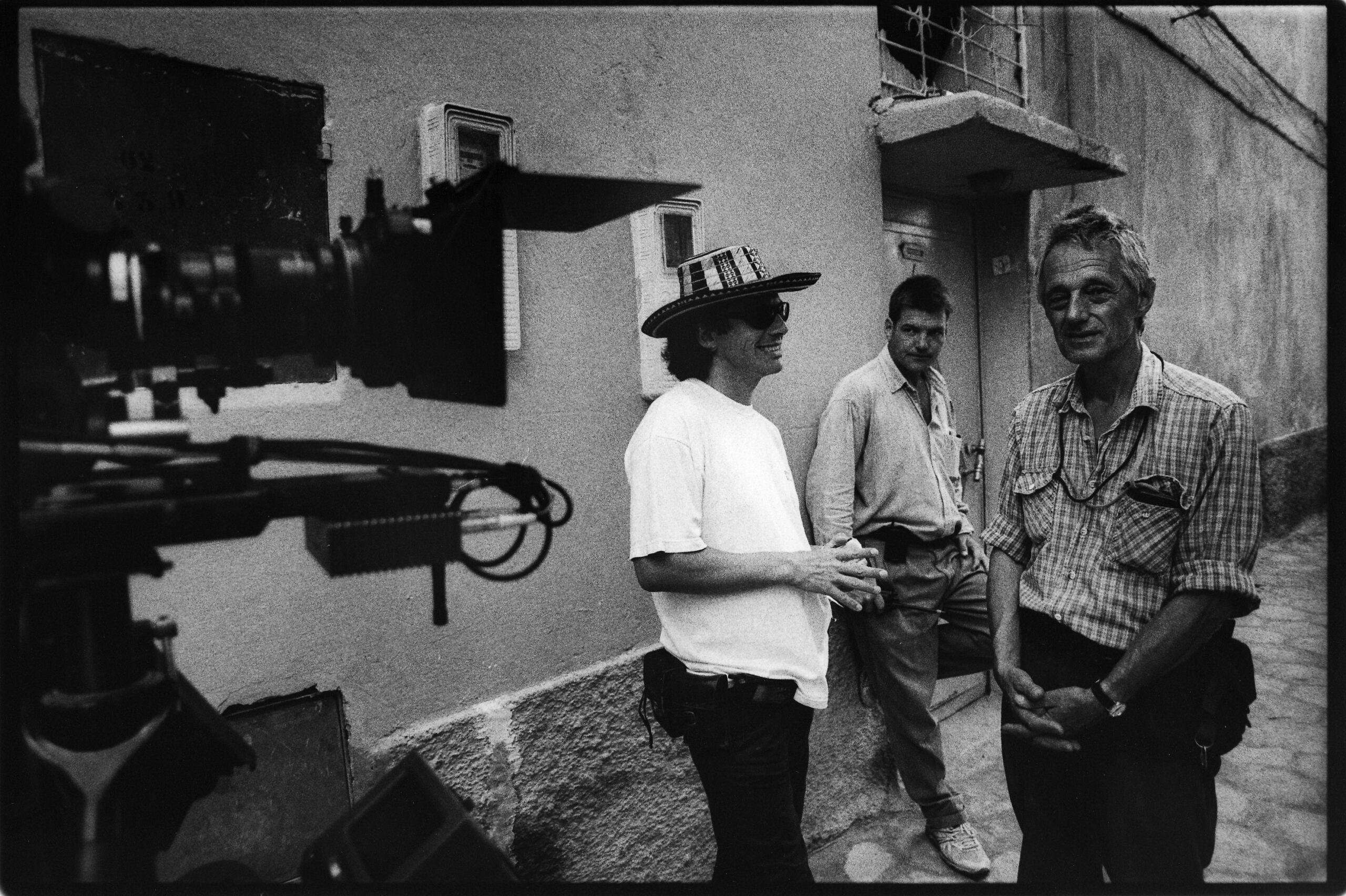Ciro Cappellari's Cinematic Journey
Ciro Cappellari
Award-winning filmmaker with over three decades of experience as a writer, director, and cinematographer. Renowned for exploring diverse themes in feature films and documentaries, blending human stories with compelling visual storytelling. Experienced film educator with a passion for mentoring emerging talent worldwide.
Since 1989, Ciro Cappellari has been working as a writer, director, and cinematographer.
His most important works as a director include Sin Querer – Time of the Flamingos (1997), which won the Sundance Cinema 100 Award for Best Screenplay. It also won Best Film at the Göteborg Film Festival and was nominated for the European Award “Felix” in 1999. His first feature film, Hijo del Río – The Son of the River (1995), won Best Film at the Latin-American Film Festival in Trieste. The documentary Abdullah Ibrahim – A Struggle for Love (2005) won the Adolf-Grimme Award in Germany. He has worked on several projects as a cinematographer, including films by Pepe Danquart Schwarzfahrer (1992), which won the Academy Award for Best Short Film, “Oscar”® 1994), Marcel Gisler Die Blaue Stunde (1992), Audience Award at the Max Ophüls Festival), Dominique de Rivaz Mein Name ist Bach (2003), Swiss Film Prize 2004), and Vadim Glowna Sleeping Beauties (2006)). He also works as a commercial director.
Since 2007, he has been a member of the European Film Academy. As a film professor for the past 18 years: 2001–2017: Teaching workshops in writing, directing, and cinematography at the Deutsche Film- und Fernseh-Akademie Berlin (DFFB), the Hochschule für Fernsehen und Film (HFF) in Potsdam, Germany, Filmhaus Babelsberg, and DGCINE, Santiago, Dominican Republic. Exchange program between the DFFB and CalArts: “CalArts & DFFB LAB”. 2017–2021: Full-time faculty at CalArts School of Film and Video (California Institute of the Arts). 2021–Present: Head Professor of the MA Film Program at IFS Cologne (International Film School).
Languages: Spanish, German, English, Italian, French, Portuguese.
Upcoming Projects:
What Do the Ghosts Say?: A documentary exploring race and identity in Argentina (in development). Playfully navigating through facts, official narratives, rumors, whispers, sounds, and fragmented evidence, What Do the Ghosts Say? considers questions about race and identity, longing and belonging, and the senseless myth of whiteness in Argentina today.
Earth Stories: A documentary series showcasing ecological narratives across cultures.
Good Neighbor: A feature thriller screenplay about two half-brothers battling over their father’s dark past as an SS officer during WWII
Teaching Statement
One year after I finished my studies at the DFFB (German Film and Television Academy) in Berlin, I began working as a filmmaker and subsequently received several offers to teach. Though it would have benefitted me financially at the time, I decided not to accept these offers right away. Hungry to realize my artistic projects, I felt that I needed to go out and apply some of the knowledge and skills I had acquired, but not quite ready to advise students and develop a pedagogical approach. I believed (and still do) that only by working on several film projects that I would be more prepared to share my insight and experience with aspiring filmmakers. As I began to make films, I never accepted the pressure to define myself solely as an author, a director, or a cinematographer and came to navigate these roles dexterously. Now, having worked on several documentary, experimental, and fictional films and installations, I have grown into an artist who takes a holistic approach to film making which has directly informed and allowed me to craft my skills as a teacher and mentor. As I continue to balance my creative output and the ever-evolving nature of education, my pedagogical approach is centered around and defined by the notion of praxis, where theoretical concerns are situated alongside application and the process of making.
I encourage my students to learn by doing; they must develop their projects without fear of transgressing rules. Now more than ever students require a sophisticated working knowledge of the technology and techniques needed to acquire a desired aesthetic outcome. At the same time, however, they need to respect and nurture their intuitive approaches and ideas. There must be a balance between a filmmaker’s analog, human impulses and their technological savvy. I, therefore, respect my students’ cultural backgrounds and intuitive knowledge and don’t impose arbitrary structuring rules; I encourage the students to determine the ideas they want to realize and the parameters that are required to realize such a vision. To help them in this endeavor, my role is to share my insights and experience. There is a quote by Johannes Itten, author of the 1960s text The Art of Color, that gets to what I think is the essence of learning: “If you unknowing are able to create masterpieces in color, then un-knowledge is your way. But if you are unable to create masterpieces in color out of your un-knowledge, then you ought to look for knowledge.” Though I don’t believe in “masterpieces,” or in the authority of one school of knowledge, I do think that only through a willingness to learn as much as we can about our craft, can we embrace, manipulate or reject the tools that allow us to realize our aesthetic ambitions.
When working with filmmaking tools, I believe that the artist has to work with the materials at hand to satisfy their demands while not taking the technical equipment for granted. Today when we use a tool like a digital camera, it is the technical industry who, in part, determines our aesthetics and the resulting form of expression. So, only by considering that technology and then experimenting and applying it in different ways can we disrupt an intended use and attend to broadening our artistic sensibilities. For example, we always discuss the binary characteristics of the digital sensors in my classes. We then embark on experiments using lenses, filters, and the aperture differently to create textures that disrupt the binary aesthetics of the sensor. I want to expose my students to the variety of techniques at their disposal not because the latest technology is a necessary improvement on the past; rather, each new technology must be situated within our ever-evolving medium and the particular filmmaker’s desired aesthetic.
Throughout my professional career, I have continuously researched and tested new formats and technologies. My openness to experimenting with materials to realize artistic objectives is something that I try to inspire in my students. As a result of my experience, I don’t believe that there is a better or “right” format to shoot a project, and I actively expose my students to many different tools to alleviate the fear of equipment and to encourage them to utilize these tools in the service of their ideas. These technical, creative aspects, however, are not the only part of my classes. I also teach the grammar of visual language for moving images. This includes questions of composition, the exigencies of time, the rhythm of a given scene, etc., which allows the students to analyze how varying techniques and equipment create signature aesthetics while helping them begin conceptualizing how to create their own cinematic language.
In closing, I want to quote my teacher and friend Fernando Birri – founder of the revolutionary Escuela Internacional de Cine y Televisión (EICTV) with Gabriel Garcia Marquez and Fidel Castro in Cuba. Fernando, who believed in experimental work and the political power of film relayed to me in our last conversation: “I’m getting very old, but my dreams don’t get old. Our active role is not to let a dream grow old but to fulfill that dream. Fulfill a dream and dream a new dream.” My work as a pedagogue is not only to guide, motivate, and share my knowledge and experience, but also to nurture the intuitive capacity of students who must be encouraged to realize the ideas they dream up.
Ciro Cappellari
Diversity Statment
“O my body, make of me always a man who questions!” ― Frantz Fanon
In the many years that I have been making films the stories I have focused on center voices that have either been marginalized or erased. Whether through my own experiences as an Argentine immigrant in Germany where I made a short experimental film about the denigrating experience of acquiring visa documents, or my feature documentary that explored Argentina’s genocidal amnesia, questioning what it means to be part of or ostracized from places and spaces, and how to decolonize knowledge production has driven my artistic practice. I think, therefore, that the best way for me to discuss my attitudes towards questions of diversity, equity, and inclusiveness is by explaining a bit more in-depth one of my first films, and briefly some aspects of my later work.
I began this text with an epigraph from Frantz Fanon, a philosopher and revolutionary who has been profoundly influential in shaping my critical political attitude. His postcolonial analysis and decolonial discourses were part of the germinating seeds that were planted in my brain about Argentina’s enduring problems reckoning with its (post)colonial history. In primary school, I went to school with mostly Mapuche children, yet their stories were never taught in school. We were rather taught how Argentina became a land of European immigrants, while as the myth goes, the Mapuche (the true first inhabitants of the land) heralded from neighboring (“rival”) Chile. This persistent narrative has fostered an attitude that allows European immigrants (still to this day) to seize Mapuche lands without fear of consequences or retribution as the Mapuche, not the European descendants, are stigmatized as extranjeros, or “foreigners.” By the time Fanon entered my life, I realized that the stories that were being told in school, and society writ large, mattered because they continued to enable the brutal and unjust treatment of people by erasing their stories and thus the importance of their existence. With this awareness, I came back from my exile in Europe after the dictatorship ended and made my first film, “Amor América.” This full-length bilingual (Mapudungun and Spanish) documentary is told from the perspective of Mapuche descendants and documents their reconstruction of their ancestral story in the Argentinian south. For this work I decided to trace the entire path of colonization, by foot, hitchhiking, and train, meeting different people who lived in the region where I grew up: Patagonia. There I met the singer Aymé Painé who was in the process of researching the active culture of her ancestors. We developed a deep friendship, but sadly she died unexpectedly throughout the process, and I continued working with her best friend Luisa Calcumil, one of the few Argentinian Mapuche actresses, with whom I have continued to work over the course of my career. These two powerful and engaged women became the protagonists of the film in their struggle to reconnect with their own repressed heritage, reconstructing a collective memory through their communication with survivors.
From my first film, I took an attitude to engage teams that were of diverse gender, ethnic, cultural, and socio-economic backgrounds. It is impossible to engage in critical topics without having a team of varying backgrounds that can bring critical perspectives. As my work has focused on social critiques this has also been a way of making sure that the ethics of the work are consistent with the process of making the film.
The content of my films also reflects my attitude towards those with whom I have worked. Here are just a few examples. My first fiction-documentary feature tells the story of a Chorote youth (both in real life and in the film) who is obligated to move to the metropole, Buenos Aires, where he is stigmatized and forced into a criminal situation, circumstances that reflect an ongoing problem with the way Argentina’s indigenous population is treated. In “Francesco and the Pope,” the protagonist is a 12-year-old boy who sings in the Sistine Chapel Choir and lives with his divorced mother, who has a critical view of the values of the conservative Catholic church. I co-wrote, co-produced, and was a cinematographer for the short film “Schwarzfahrer” (“Blackrider”) about a racist aggression in a tramway in Berlin. My documentary “A Struggle for Love” portrays jazz musician master Abdullah Ibrahim and his epic story of exile from apartheid South Africa. For my second feature film “Sin Querer – Time of the Flamingos,” I worked with the anarcho-pacifist journalist Osvaldo Bayer and feminist screenwriter and sociologist Graciela Maglie, who became my inseparable writing partner for many other scripts.
As a DP, I have mostly worked with independent directors like Anka Schmid, Tania Stöcklin, Petra Tschörtner, Gabrielle Baur, and Dominique de Rivaz to mention a few, and collaborated with important queer director Marcel Gissler in his film “The Blue Hour.” I have also engaged members in my team, for example, AC Febienne Octobre, Grip Sussan Schmitt, Second AC, and transman Mocho García, and many others in roles that have classically been filled by men.
I can continue naming the films that I have made or contributed to where the content and/or the team were driven by the need to disrupt unjust power dynamics. However, there is a 1980 interview between James Baldwin and Chinua Achebe that best sums up my attitudes towards social justice and making art. Achebe, in discussing the role of politics in art states: “Those who tell you ‘Do not put too much politics in your art’ are not being honest. If you look very carefully you will see that they are the same people who are quite happy with the situation as it is… What they are saying is don’t upset the system.” My work engagements and the people I have had the pleasure of working with have illuminated and expanded my understanding and sensitivity towards diversity, equity, and inclusivity while nourishing my political and artistic convictions.
Ciro Cappellari
Ciro Cappellari's Cinematic Journey
Ciro Cappellari's Story
Award-winning filmmaker with over three decades of experience as a writer, director, and cinematographer. Renowned for exploring diverse themes in feature films and documentaries, blending human stories with compelling visual storytelling. Experienced film educator with a passion for mentoring emerging talent worldwide.
Since 1989, Ciro Cappellari has been working as a writer, director, and cinematographer.
His most important works as a director include Sin Querer – Time of the Flamingos (1997), which won the Sundance Cinema 100 Award for Best Screenplay. It also won Best Film at the Göteborg Film Festival and was nominated for the European Award “Felix” in 1999. His first feature film, Hijo del Río – The Son of the River (1995), won Best Film at the Latin-American Film Festival in Trieste. The documentary Abdullah Ibrahim – A Struggle for Love (2005) won the Adolf-Grimme Award in Germany. He has worked on several projects as a cinematographer, including films by Pepe Danquart Schwarzfahrer (1992), which won the Academy Award for Best Short Film, “Oscar”® 1994), Marcel Gisler Die Blaue Stunde (1992), Audience Award at the Max Ophüls Festival), Dominique de Rivaz Mein Name ist Bach (2003), Swiss Film Prize 2004), and Vadim Glowna Sleeping Beauties (2006)). He also works as a commercial director.
Since 2007, he has been a member of the European Film Academy. As a film professor for the past 18 years: 2001–2017: Teaching workshops in writing, directing, and cinematography at the Deutsche Film- und Fernseh-Akademie Berlin (DFFB), the Hochschule für Fernsehen und Film (HFF) in Potsdam, Germany, Filmhaus Babelsberg, and DGCINE, Santiago, Dominican Republic. Exchange program between the DFFB and CalArts: “CalArts & DFFB LAB”. 2017–2021: Full-time faculty at CalArts School of Film and Video (California Institute of the Arts). 2021–Present: Head Professor of the MA Film Program at IFS Cologne (International Film School).
Languages: Spanish, German, English, Italian, French, Portuguese.
Upcoming Projects:
What Do the Ghosts Say?: A documentary exploring race and identity in Argentina (in development). Playfully navigating through facts, official narratives, rumors, whispers, sounds, and fragmented evidence, What Do the Ghosts Say? considers questions about race and identity, longing and belonging, and the senseless myth of whiteness in Argentina today.
Earth Stories: A documentary series showcasing ecological narratives across cultures.
Good Neighbor: A feature thriller screenplay about two half-brothers battling over their father’s dark past as an SS officer during WWII
Teaching Statement
One year after I finished my studies at the DFFB (German Film and Television Academy) in Berlin, I began working as a filmmaker and subsequently received several offers to teach. Though it would have benefitted me financially at the time, I decided not to accept these offers right away. Hungry to realize my artistic projects, I felt that I needed to go out and apply some of the knowledge and skills I had acquired, but not quite ready to advise students and develop a pedagogical approach. I believed (and still do) that only by working on several film projects that I would be more prepared to share my insight and experience with aspiring filmmakers. As I began to make films, I never accepted the pressure to define myself solely as an author, a director, or a cinematographer and came to navigate these roles dexterously. Now, having worked on several documentary, experimental, and fictional films and installations, I have grown into an artist who takes a holistic approach to film making which has directly informed and allowed me to craft my skills as a teacher and mentor. As I continue to balance my creative output and the ever-evolving nature of education, my pedagogical approach is centered around and defined by the notion of praxis, where theoretical concerns are situated alongside application and the process of making.
I encourage my students to learn by doing; they must develop their projects without fear of transgressing rules. Now more than ever students require a sophisticated working knowledge of the technology and techniques needed to acquire a desired aesthetic outcome. At the same time, however, they need to respect and nurture their intuitive approaches and ideas. There must be a balance between a filmmaker’s analog, human impulses and their technological savvy. I, therefore, respect my students’ cultural backgrounds and intuitive knowledge and don’t impose arbitrary structuring rules; I encourage the students to determine the ideas they want to realize and the parameters that are required to realize such a vision. To help them in this endeavor, my role is to share my insights and experience. There is a quote by Johannes Itten, author of the 1960s text The Art of Color, that gets to what I think is the essence of learning: “If you unknowing are able to create masterpieces in color, then un-knowledge is your way. But if you are unable to create masterpieces in color out of your un-knowledge, then you ought to look for knowledge.” Though I don’t believe in “masterpieces,” or in the authority of one school of knowledge, I do think that only through a willingness to learn as much as we can about our craft, can we embrace, manipulate or reject the tools that allow us to realize our aesthetic ambitions.
When working with filmmaking tools, I believe that the artist has to work with the materials at hand to satisfy their demands while not taking the technical equipment for granted. Today when we use a tool like a digital camera, it is the technical industry who, in part, determines our aesthetics and the resulting form of expression. So, only by considering that technology and then experimenting and applying it in different ways can we disrupt an intended use and attend to broadening our artistic sensibilities. For example, we always discuss the binary characteristics of the digital sensors in my classes. We then embark on experiments using lenses, filters, and the aperture differently to create textures that disrupt the binary aesthetics of the sensor. I want to expose my students to the variety of techniques at their disposal not because the latest technology is a necessary improvement on the past; rather, each new technology must be situated within our ever-evolving medium and the particular filmmaker’s desired aesthetic.
Throughout my professional career, I have continuously researched and tested new formats and technologies. My openness to experimenting with materials to realize artistic objectives is something that I try to inspire in my students. As a result of my experience, I don’t believe that there is a better or “right” format to shoot a project, and I actively expose my students to many different tools to alleviate the fear of equipment and to encourage them to utilize these tools in the service of their ideas. These technical, creative aspects, however, are not the only part of my classes. I also teach the grammar of visual language for moving images. This includes questions of composition, the exigencies of time, the rhythm of a given scene, etc., which allows the students to analyze how varying techniques and equipment create signature aesthetics while helping them begin conceptualizing how to create their own cinematic language.
In closing, I want to quote my teacher and friend Fernando Birri – founder of the revolutionary Escuela Internacional de Cine y Televisi ó n (EICTV) with Gabriel Garcia Marquez and Fidel Castro in Cuba. Fernando, who believed in experimental work and the political power of film relayed to me in our last conversation: “I’m getting very old, but my dreams don’t get old. Our active role is not to let a dream grow old but to fulfill that dream. Fulfill a dream and dream a new dream.” My work as a pedagogue is not only to guide, motivate, and share my knowledge and experience, but also to nurture the intuitive capacity of students who must be encouraged to realize the ideas they dream up.
Ciro Cappellari
Diversity Statment
“O my body, make of me always a man who questions!” ― Frantz Fanon
In the many years that I have been making films the stories I have focused on center voices that have either been marginalized or erased. Whether through my own experiences as an Argentine immigrant in Germany where I made a short experimental film about the denigrating experience of acquiring visa documents, or my feature documentary that explored Argentina’s genocidal amnesia, questioning what it means to be part of or ostracized from places and spaces, and how to decolonize knowledge production has driven my artistic practice. I think, therefore, that the best way for me to discuss my attitudes towards questions of diversity, equity, and inclusiveness is by explaining a bit more in-depth one of my first films, and briefly some aspects of my later work.
I began this text with an epigraph from Frantz Fanon, a philosopher and revolutionary who has been profoundly influential in shaping my critical political attitude. His postcolonial analysis and decolonial discourses were part of the germinating seeds that were planted in my brain about Argentina’s enduring problems reckoning with its (post)colonial history. In primary school, I went to school with mostly Mapuche children, yet their stories were never taught in school. We were rather taught how Argentina became a land of European immigrants, while as the myth goes, the Mapuche (the true first inhabitants of the land) heralded from neighboring (“rival”) Chile. This persistent narrative has fostered an attitude that allows European immigrants (still to this day) to seize Mapuche lands without fear of consequences or retribution as the Mapuche, not the European descendants, are stigmatized as extranjeros, or “foreigners.” By the time Fanon entered my life, I realized that the stories that were being told in school, and society writ large, mattered because they continued to enable the brutal and unjust treatment of people by erasing their stories and thus the importance of their existence. With this awareness, I came back from my exile in Europe after the dictatorship ended and made my first film, “Amor América.” This full-length bilingual (Mapudungun and Spanish) documentary is told from the perspective of Mapuche descendants and documents their reconstruction of their ancestral story in the Argentinian south. For this work I decided to trace the entire path of colonization, by foot, hitchhiking, and train, meeting different people who lived in the region where I grew up: Patagonia. There I met the singer Aymé Painé who was in the process of researching the active culture of her ancestors. We developed a deep friendship, but sadly she died unexpectedly throughout the process, and I continued working with her best friend Luisa Calcumil, one of the few Argentinian Mapuche actresses, with whom I have continued to work over the course of my career. These two powerful and engaged women became the protagonists of the film in their struggle to reconnect with their own repressed heritage, reconstructing a collective memory through their communication with survivors.
From my first film, I took an attitude to engage teams that were of diverse gender, ethnic, cultural, and socio-economic backgrounds. It is impossible to engage in critical topics without having a team of varying backgrounds that can bring critical perspectives. As my work has focused on social critiques this has also been a way of making sure that the ethics of the work are consistent with the process of making the film.
The content of my films also reflects my attitude towards those with whom I have worked. Here are just a few examples. My first fiction-documentary feature tells the story of a Chorote youth (both in real life and in the film) who is obligated to move to the metropole, Buenos Aires, where he is stigmatized and forced into a criminal situation, circumstances that reflect an ongoing problem with the way Argentina’s indigenous population is treated. In “Francesco and the Pope,” the protagonist is a 12-year-old boy who sings in the Sistine Chapel Choir and lives with his divorced mother, who has a critical view of the values of the conservative Catholic church. I co-wrote, co-produced, and was a cinematographer for the short film “Schwarzfahrer” (“Blackrider”) about a racist aggression in a tramway in Berlin. My documentary “A Struggle for Love” portrays jazz musician master Abdullah Ibrahim and his epic story of exile from apartheid South Africa. For my second feature film “Sin Querer – Time of the Flamingos,” I worked with the anarcho-pacifist journalist Osvaldo Bayer and feminist screenwriter and sociologist Graciela Maglie, who became my inseparable writing partner for many other scripts.
As a DP, I have mostly worked with independent directors like Anka Schmid, Tania Stöcklin, Petra Tschörtner, Gabrielle Baur, and Dominique de Rivaz to mention a few, and collaborated with important queer director Marcel Gissler in his film “The Blue Hour.” I have also engaged members in my team, for example, AC Febienne Octobre, Grip Sussan Schmitt, Second AC, and transman Mocho García, and many others in roles that have classically been filled by men.
I can continue naming the films that I have made or contributed to where the content and/or the team were driven by the need to disrupt unjust power dynamics. However, there is a 1980 interview between James Baldwin and Chinua Achebe that best sums up my attitudes towards social justice and making art. Achebe, in discussing the role of politics in art states: “Those who tell you ‘Do not put too much politics in your art’ are not being honest. If you look very carefully you will see that they are the same people who are quite happy with the situation as it is… What they are saying is don’t upset the system.” My work engagements and the people I have had the pleasure of working with have illuminated and expanded my understanding and sensitivity towards diversity, equity, and inclusivity while nourishing my political and artistic convictions.
Ciro Cappellari
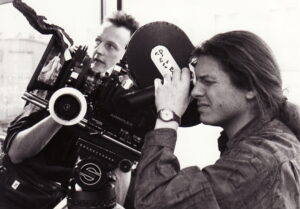
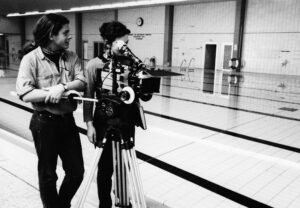
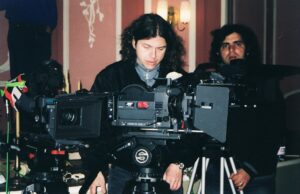
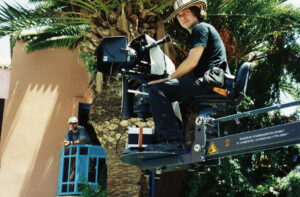
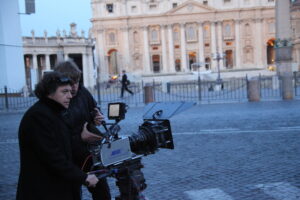
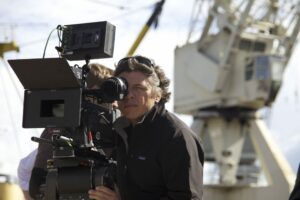
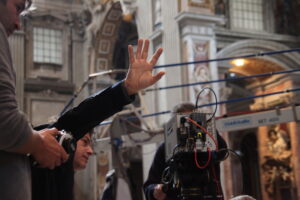
Filmography as Director and Writer
| 2020 | Script to Boca Heaven (Writer – feature screenplay): A story about a very young,successful soccer player who must confront his violent past and resolve deep conflicts withhis criminal father. | ||
| 2017 | Script to A Matter of Belonging (Documentary script – Writer, Director, in research): Paulo, a 29-year-old living in Germany, was adopted from Brazil at age 4. When his biological mother contacts him, Paulo must confront who he could have been, who he is, andwho he might become. – Production: JYOTI Film, On2U Film. | ||
| 2015 | Script to Three Women in Black (Writer – feature): A dark comedy-drama about three women who seek to free themselves from the same man and the dominant macho culture around them. | ||
| 2012 | The Street and The Rag Ball (Producer, Writer, Director, Cinematographer): A documentary exploring the lives of six street footballers from Kenya and Argentina as they fight poverty behind the façades of two mega-cities. – Production: Ciro Cappellari Film Production and Cine Plus Media | ||
| 2011 | Francesco and The Pope (Writer, Director, Cinematographer): Through the eyes of 11-year-old Francesco, who dreams of singing in the Sistine Chapel Choir, this documentary takes viewers behind the walls of the Vatican. – Production: Constantin Film, Fanes Film, and Beta Film | ||
| 2009 | In Berlin (Writer, Director, Cinematographer – co-director: Michael Ballhaus) Documentary feature. – Production: Cine Plus Media Service and RBB/arte | ||
| 2008 | El ojo de la patria (Writer – feature): Script based on the novel by Osvaldo Soriano. | ||
24h Buenos Aires (Writer, Director, Cinematographer): Short documentary on German emigration in Buenos Aires. – Production: Cine Plus and Deutsches Auswandererhaus Bremerhaven | |||
| 2007 | Bridging the Gaps (Writer, Director, Cinematographer): Documentary about Lebanese musician Rabih Abou-Khalil. – Production: ARTE in cooperation with Cine Plus | ||
| 2006 | Streetfootballworld (Producer, Writer, Director, Cinematographer): short documentary about street football culture in six countries. – Production: Ciro Cappellari Film Production | ||
Gens d’Europe – Zambeze (Writer, Director, Cinematographer): A short documentary about artist and gallery owner Zambeze Almeida in Lisbon. – Production: Cinétévé France | |||
| 2005 | Audienz beim Kaiser (Writer, Director, Cinematographer): A documentary about soccer legend Franz Beckenbauer. – Production: doc.station | ||
Welcome Home (Writer, Director, Cinematographer): A short documentary on German emigration to the U.S. – Production: Production1-cine+ | |||
| 2004 | Abdullah Ibrahim – A Struggle for Love (Writer, Director, Cinematographer): Documentary on Abdullah Ibrahim’s life. – Production: cine+ for ZDF–arte | ||
Sehnsucht (Director) TV feature. – Production: teamworX/WDR. Super-16 mm. | |||
| 2002 | Tatort- Endspiel – (director) TV-feature. – Production: Radio Bremen/Degeto ARD, 16mm FILM | ||
| 1996 | Sin Querer – Time of the Flamingos (Writer, Director): A young engineer arrives in remote town where a highway project disrupts the community’s order. – Production: Transfilm/Delphi/procine/Aleph S.A. | ||
| 1992 | The Son of The River (Hijo del Río) (Producer, Writer, Director, Cinematographer): A young man leaves his reservation for Buenos Aires, joining a criminal gang in a corrupt society. – Production: Ciro Cappellari Filmproduktion, Transfilm, ZDF | ||
| 1989 | Amor América – Producer, writer, director, cinematographer A feature documentary focusing on the survivors of the genocide during the invasion of territories in Patagonia, Argentina, by the Argentine military. – Production: Ciro Cappellari Filmproduktion, W. Pfeifer Filmproduktion | ||
Artistic Works (selection) | |||
| 2012 | MÄDCHENHANDEL 1900: writer, producer, director and cinematographerVideo-installation in Zentrum Judaicum Berlin (old Synagoge) and in Deutschen Auswandererhaus in Bremerhaven. Documentary about the emigration of Jewish women from Europe to South America that are forced into prostitution. | ||
| 2005-2008 | Installation of short experimental documentaries about migration Museum Deutsches Auswandererhaus in Bremerhaven. |
Filmography as Cinematographer
| 2006 | Sleeping Beauties Director: Vadim Glowna. Feature film, cinemascope. | ||
| 2005 | Maux d’amour Director: Erika Rettig Michaels TV-Documentary Prod: Le Films Jakc Fébus (Paris) for France-5 | ||
| 2004 | Les Champions d’Olympie TV doc/fiction Director: Philippe Molins.Production: GEDEON (Paris) for arte | ||
The Fight Director: Barak Goodman Kino/TV doc. (USA) | |||
| 2003 | Mein Name ist Bach Director: Dominique de Rivaz, Feature film, Swiss Film Prize in 2004. | ||
| 2001 | Semana Santa Director: Pepe Danquart, Feature film. | ||
| 2000 | Mörderinnen Director: Pepe Danquart, Prod. Multimedia, TV movie S-16Colour. | ||
El acordeón del Diablo Director: Stefan Schwietert, Prod. Zero Film, Documentary feature. Feature film Director: Stefan Schwietert, Prod. SFR, TV documentary | |||
| 1999 | Last Minute Casbah Director: Michael Wenning. Prod.Teamworx.TV movie | ||
| 1998 | Einsteins Ende Director: Jürgen Kaizik, Feature film. | ||
| 1997 | Aprilkinder Director: Yücsel Yavuz, Feature film. Prod. Zero Film Berlin | ||
Vampsida Director: Cloves Mendes, Short film. | |||
| 1995 | Magic Matterhorn Director: Anka Schmid, Documentary feature. | ||
Indians Never Die Director: Pepe Danquart, TV documentary | |||
| 1994 | Marmor, Stein und Eisen Director: Petra Tschörtner, Documentary feature | ||
Die Bettkönigin Director: Gabrielle Baur, Feature film | |||
Joe et Marie Director: Tania Stöcklin, Feature, Feature film.. | |||
| 1993 | Surabaya Jonny Director” Miriam Dehne, Short film | ||
Cripple to be Free Director: Didi Danquart, TV documentary. | |||
| 1992 | Am Ende der Nacht Director: Christoph Schaub, Feature film. | ||
Vaterland Director: Ulli Schüppel, Feature film. | |||
Schwarzfahrer Director: Pepe Danquart, Shortfilm B&W, | |||
Die blaue Stunde Director: Marcel Gisler, Feature film. | |||
| 1990 | Hinter verschlossenen Türen Director: Anka Schmid, Feature film | ||
Praktisch und Friedlich Director: Anka Schmid, Short film | |||
Der Pannwitz-Blick Director: Didi Danquart, TV documentary. | |||
| 1989 | Stiller Mensch Director: Arvo Blechstein, Short film B&W | ||
| 1988 | Georgette Meunier (Die Gottesanbeterin) Director: Tania Stöcklin. Featurefilm | ||
| 1987 | Seven Melodies Chrono Director: Ludger Blanke, Short film | ||
WalkWoman Director: Anka Schmid, Short film | |||
| 1985 | Nihil- oder alle Zeit der Welt Director: Ulli Schüppel, Short film | ||
Habibi – ein Liebesbrief Director: Anka Schmid, Short film. |
Film Teacher
2001 to 2016 Teaching workshops for writing, directing and cinematography at Deutsche Film- und Fernseh-Akademie Berlin (DFFB).
2007 Workshop for digital cinematography at Film University Babelsberg Konrad Wolf, Germany.
2011 Lecturer for directing and cinematography at Filmhaus Babelsberg.
2012 to 2013 Head lecturer of Non-fiction film dramaturgy at Filmhaus Babelsberg.
2014 Documentary Workshop “The cinema of reality” at DGCINE, Santiago, Dominican Republic.
2015 and 2016 led an exchange program between the DFFB and CalArts.
2016 worked as an invited professor at CalArts in Los Angeles.
2016 to 2018, Special Faculty Teacher at CalArts (California Institute of the Arts) in Los Angeles.
2019 to present, Director of the Master Program in Film at the International Film School (IFS) in Cologne.
Awards
2005 – Adolf-Grimme-Preis, writer, director, cinematographer for Abdullah Ibrahim – A Struggle for Love
2004 – Swiss Film Prize for Mein Name ist Bach, Director: Dominique de Rivaz , Cinematography: Ciro Cappellari
1998 – Filmfestival Göteborg Best Film for Sin Querer – Time of the Flamingos ,writer, director.
1998 – Best Film for Sin Querer – Time of the Flamingos in “TURSAK“ (Turkish Foundation of Cinema and Audiovisual Culture) – Festival in Uzun.
1997 – Sin Querer – Time of the Flamingos nominated for the „Felix“ European Award writer, director.
1997 – Best Cinematography – German Awards Sin Querer – Time of the Flamingos to cinematographer Jürgen Jürges (BVK)
1996 – Sundance Cinema 100 Award/Sundance Filmfestival (USA) Screenplay award: Best European Script for Sin Querer – Time of the Flamingos
1994 – OSCAR® Academy Award Best Short Film for Schwarzfahrer, “Black Rider” Cinematographer, co-writer and co-producer
1991 – Best Film /Festival latino di Trieste (Italien) for Der Junge vom Fluss, director, writer, cinematographer.
